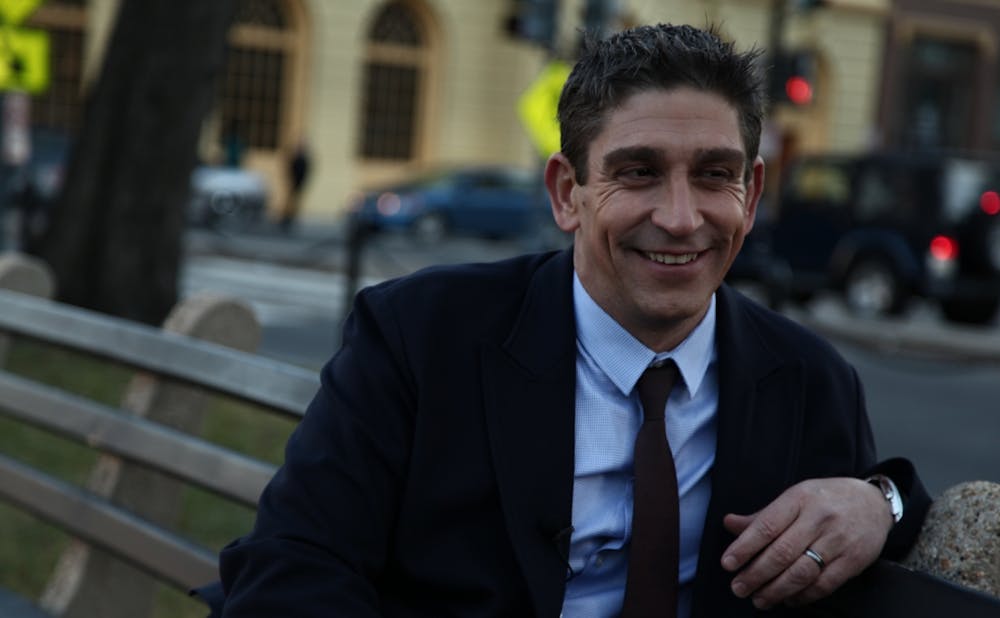Three-fourths of the way into “The Prince of Los Cocuyos,” I put it down, feeling like it wasn’t leading anywhere. The memoir, chosen as the recommended reading for the Class of 2021 Common Experience, follows the childhood of poet and author Richard Blanco as he navigates his place in his household and city. As a child, surrounded by Cubans, Blanco feels uncomfortable not being as “American” as his elementary school classmates. He tries to change this by incorporating more conventionally American food and habits into his everyday life and squirming away from his parents’ broken English in public. Yet, as Blanco ages, he begins to feel guilty for not being “Cuban” enough—not knowing how to salsa, not being able to share in memories of Cuba that his family has, not wanting to participate in machismo activities. The memoir also follows Blanco’s confusion and difficulty with discovering, and later accepting, his own sexuality, along with his search of acceptance outside of himself.
This summer I’ve been trying to catch up on classics such as “The Grapes of Wrath” and “The Sun Also Rises,” along with some modern favorites like the works of Khaled Hosseini and Barbara Kingsolver, mostly because I knew I wouldn’t get any time for leisure reading in the school year, and partly just so I could feel somewhat productive. So I decided to finish off the summer by reading “The Prince of Los Cocuyos.” Expecting something more factual, my only frame of reference being the Class of 2020 summer reading, “Just Mercy,” I thought Blanco’s memoir would be a good transition back into academia. And yet, as I tried to find the lesson, the “aha!” moment, the wow factor that would have made this book important enough to be chosen as the Common Experience reading, I couldn’t.
What I found interesting, though, was that I was always called back to the memoir. Without realizing it, between being lost and then found, I was actually making steady progress through the novel. I’d sit down and become immersed in the life of this little boy trying to find his place in what seemed to be a two-dimensional world. Not only that, but the vibrant colors, smells and sounds described in the memoir seemed to pull me through the pages and into Miami, viewing the fading but glorious Copa, hearing my own shoes clack down the aisles of El Cocuyito, smelling the pine and roasted pork El Farito. Intrigued once again after a weeklong hiatus, I picked up the memoir and finished it in one sitting, with tears in my eyes and not a thought of Duke in my head.
So no, “The Prince of Los Cocuyos” does not follow the same rules as Steinbeck or Hemingway, nor does it create the thought-out characters and symbols present in the works of Hosseini or Kingsolver. And though “The Prince of Los Cocuyos” doesn’t provide the immediate emotional impact that Bryan Stevenson’s “Just Mercy” did, through its individuality the novel is able to convey other messages too often overlooked: the validity of confusion, the earnestness of childhood, the struggle of not being able to name your struggle. While I grew up in southeastern North Carolina in the 2000s in a small family with Irish roots, I still found I could relate to Blanco in one way or another, just as I’m sure most other readers can. The fundamental experiences he describes, such as wanting and shame and frustration, are universal, even if they manifest themselves in the desire to buy Easy Cheese or in not wanting to “dare disturb the universe” by making the move toward a first kiss. The novel acknowledges the intricacies of childhood, and the complexity of one’s story.
The Class of 2021 is currently wrapping up their childhood and embarking on the next part of their lives. This semester, they’re going to meet hundreds of people they may only be able to touch the surface of, with questions like “Where are you from?” and “What's your major?” And while it may not feel timely or appropriate to jump into life stories moments after meeting, it is important to understand that there is always much more about our friends and acquaintances that we may never know. For the longest time, I felt like the book wasn’t making a point to wrap up, like many of the classics do, following the most basic plot diagram, and this unnerved me. At 18, I want to feel some completeness, but as with Blanco, that isn’t the case. The end of his childhood doesn’t function as a closing but as a beginning, just as this fall is for many students on campus. And hey, if you’re not comfortable enough telling your own story at the moment, you can at least bond over his.
Get The Chronicle straight to your inbox
Signup for our weekly newsletter. Cancel at any time.

